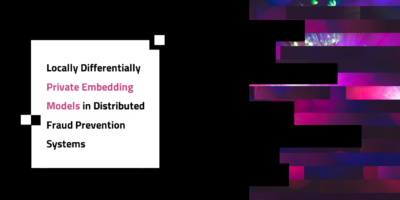Leading UK bank also reduces false positives for scams by 75%
Cambridge, UK, 25 April 2023 – New findings today from Featurespace, the world leader in machine learning fraud and financial crime prevention technology, highlights that its innovative modelling technology has helped NatWest to improve its financial scam detection rate by 135%.
The On The Frontier Of Scam Detection report, commissioned by Aite-Novarica Group, the advisory firm providing mission-critical insights for the financial industry, demonstrates the work Featurespace has done with NatWest – as well as showing wider findings on how the financial services industry can tackle scams.
The driver for this partnership was a need for a more robust detection model as scams have risen due to the introduction of Faster Payments in 2008 and the rise of authorised push payment (APP) fraud in recent years. This explosive growth in scams set in motion countermeasures that had a profound impact on fraud executives in the U.K.
NatWest chose Featurespace to help upgrade to a fraud detection platform that enabled fraud detection in real time, and included the flexibility to design, develop, and deploy fraud risk modelling based on advanced applied analytics that would render significant improvements to scam detection rates and accuracy.
The positive outcome for NatWest was an improved scam detection rate of 135% and a reduction in false positives for scams by 75%. This reduction in false positives has an important business impact on the bank, as it enables genuine transactions to be processed quicker, saving both costs and processing time.
The partnership utilised Featurespace’s product, ARIC™ Risk Hub. The machine learning architecture coupled with the experience of the team contributed to enabling NatWest to use their customer data with the most valuable signals. The modelling schema required much less data transformation than would be the case for vended platforms built on relational databases.
The innovative approach that Featurespace brings with machine learning is the deep understanding of normal transactional behaviour, even down to the individual customer level so that anomalies stand out. These suspicious payments may meet the patterns of scams but with the additional aggregated context of signals such as device profiling, these can be more confidently identified as scams.
Martina King, CEO, Featurespace, said: “NatWest should be congratulated for taking a modern approach to solving a huge challenge for their company and their customers. They have demonstrated the benefits to be achieved through innovation and partnership. We developed our technology to support them and with the knowledge that our invention, Adaptive Behavioral Analytics, works for any bank in the world.”
The On The Frontier Of Scam Detection report also looked at wider challenges financial institutions (FIs) need to address to tackle this pressing global crime. Key findings included:
- Authentication controls are mostly useless. The market for authentication controls has reached such a state of maturity that many fraud practitioners speculate the widespread adoption of such a diverse and effective range of authentication capabilities. This is, in large part, what drives fraudsters to expand into scams as a source of revenue. In short, many believe that FIs’ rate of investment in authentication has made unauthorized payment fraud so costly that scams are now considered to be a more cost-effective form of attack.
- Scam transactions look a lot like legitimate ones. Considering their large volume, fraudulent payments are often less than 1% of the total transaction volume, and there is usually very little in the form of descriptive information about the payment in the transaction payload. Thus, it should surprise no one how difficult it is to create risk models designed to distinguish fraudulent payments from legitimate payments.
- Acquiring contextual information is challenging. While acquiring contextual data from third-party sources introduces no friction in the client experience, it is costly and often needs to be skilfully incorporated into risk models to be useful. Soliciting contextual data from the user is an effective method for revealing indications of a scam, but the interventions must be very carefully crafted and used as sparingly as possible to avoid creating a disruptive experience or fostering alert fatigue among customers.
- The victim will be resistant to intervention. Scam victims are often described as being under a spell. Scammers are very skilled at crafting their social engineering schemes in such a way as to convince their victims of the urgency and necessity of following their instructions. What’s more, the victim is likely to have been persuaded by the attacker to resist efforts to disrupt the payment. This tactic is a double whammy in terms of damage to the FI; it diminishes prevention and recoveries and violates the trust relationship between the victim and the FI.
Trace Fooshée, Strategic Advisor at Aite-Novarica Group, commented: “As criminals develop new ways of carrying out scams, fresh thinking is required to combat this pressing business and societal challenge. The innovative approaches pioneered by the collaboration between NatWest and Featurespace are insightful examples of how it’s possible to take on these challenges.”
Media contacts
Good Advice PR
Paul O’ Grady
+49 176 82374030
About Featurespace
Featurespace is the world leader in enterprise grade technology that prevents fraud and financial crime. With a mission to make the world a safer place to transact, Featurespace helps banks and financial institutions protect customers, and reduce risk and business operating costs by providing industry-leading machine learning, financial crime prevention solutions.
Featurespace invented Adaptive Behavioral Analytics and Automated Deep Behavioral Networks and is the first to profile both genuine and fraudulent behavior to identify and block criminal activity in real time. Both are patent pending technologies that are central to Featurespace’s award winning ARIC™ Risk Hub.
Over 70 direct customers and 200,000 institutions have put their trust in Featurespace’s technology including HSBC, NatWest, TSYS, Worldpay, Marqeta, Contis, Danske Bank, Akbank, Edenred and Permanent TSB. Founded in 2008, and headquartered in Cambridge, UK Featurespace has a team of over 400, operating globally from seven locations. www.featurespace.com
Aite Novarica
Aite-Novarica Group is an advisory firm providing mission-critical insights on technology, regulations, strategy, and operations to hundreds of banks, insurers, payments providers, and investment firms—as well as the technology and service providers that support them. Comprising former senior technology, strategy, and operations executives as well as experienced researchers and consultants, our experts provide actionable advice to our client base, leveraging deep insights developed via our extensive network of clients and other industry contacts.
Share







